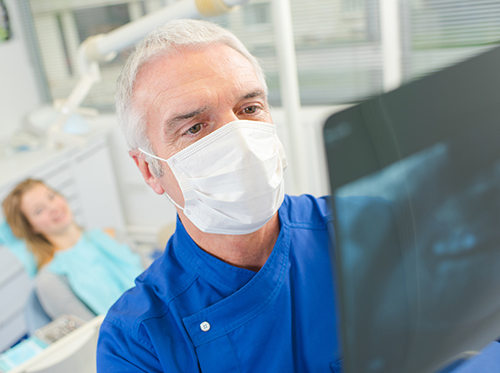August 31st, 2022

Labor Day, celebrated on the first Monday each September here in the United States, is a holiday devoted to the American working community. The purpose of the holiday is honoring the country's workers and their contributions to the strength of our country as a whole.
How Labor Day Started
There is actually some debate as to the origins of Labor Day. It is uncertain whether Peter McGuire, a cofounder for the American Federation of Labor, or Matthew Maguire, who was the secretary of Central Labor Union of New York, had the great idea. However, the Central Labor Union's plans were what launched the first Labor Day in America.
The First Labor Day
The very first Labor Day was celebrated on September 5th, 1882. The Central Labor Union then held annual celebrations on September 5th for what they called a working man's holiday. By the year 1885, the Labor Day celebration had spread to many different industrial areas, and after that it began spreading to all industries in the United States.
Labor Day Today
Labor Day today is a huge United States holiday during which we honor the country's workers with a day of rest and relaxation or a day of picnics and parades. This holiday is truly one to honor the many people who work hard to contribute to the economic well-being of our great country!
Our team at Hollywood Dental Center hopes all of our patients celebrate Labor Day, and every holiday, safely and happily. Whether you stay in the Lufkin area, or travel out of town, have fun, and don't forget to brush!
August 24th, 2022

Do you ever find yourself gnawing at your nails? Nail-biting is a very common and difficult to break habit which usually has its beginnings in childhood. It can leave your fingers and nail beds red and swollen. But if you think that your nails are the only ones getting roughed up by nail-biting you'd be mistaken—so are your teeth!
According to a study by the Academy of General Dentistry, those who bite their nails, clench their teeth, or chew on pencils are at much higher risk to develop bruxism (unintentional grinding of the teeth). Bruxism can lead to tooth sensitivity, tooth loss, receding gums, headaches, and general facial pain.
Those are some nasty sounding side effects from chewing on your nails. Most nail-biting is a sign of stress or anxiety and its something you should deal with. So what steps can you take if you have a nail-biting habit?
There are several things you can do to ease up on nail-biting:
- Trim your nails shorter and/or get regular manicures – Trimming your nails shorter is an effective remedy. In so doing, they'll be less tempting and more difficult to bite on. If you also get regular manicures, you’ll be less likely to ruin the investment you’ve made in your hands and fingernails!
- Find a different kind of stress reduction – Try meditation, deep breathing, practicing qigong or yoga, or doing something that will keep your hands occupied like squeezing a stress ball or playing with a yo-yo.
- Wear a bitter-tasting nail polish – When your nails taste awful, you won't bite them! Clear or colored, it doesn't matter. This is also a helpful technique for helping children get over the habit.
- Figure out what triggers your nail-biting – Sometimes it's triggered by stress or anxiety and other times it can be a physical stressor, like having hang nails. Knowing what situations cause you to bite your nails will help you to avoid them and break the habit.
- Wear gloves or bandages on your fingers – If you've tried the steps above and they aren't working, this technique can prove effective since your fingernails won't be accessible to bite.
If you're still having trouble with nail-biting after trying these self-help steps, it's best to consult your doctor, dermatologist, or Drs. Rose Ralph and Hayley McClendon. For some, it may also be the sign of a deeper psychological or emotional problem.
Whatever the cause, nail-biting is a habit you need to break for your physical and emotional well-being. If you have any questions about the effects it can have on your oral health, please don't hesitate to ask Drs. Rose Ralph and Hayley McClendon during your next visit to our Lufkin office.
August 17th, 2022

Your teeth were once naturally white and bright. Wouldn't it be great to keep them that way all of your life? Unfortunately, everyday living can dim our smiles. Food, coffee, some juices, and soft drinks can stain your teeth. Poor brushing and flossing can also leave tooth stains. Injuries to teeth or gums can cause some yellowing as well, and in some cases, medicines can discolor teeth.
So, you may need some extra help to maintain or restore your teeth's natural beauty. Here are some of the best ways to whiten your teeth:
1. Reduce additional staining by drinking with a straw or cutting back on coffee and soft drinks.
2. Brush and floss every day.
3. Try a whitening toothpaste or mouthwash.
4. Visit our office for teeth cleaning and an exam every six months.
We can also help you whiten your teeth with in-office professional teeth whitening at our Lufkin office. These whitening products are much more effective than whiteners you can buy at the store and are completely safe. Since they're stronger, application by a member of our team is essential to achieve the best results.
Some teeth can resist bleaching. If that's the case, we can try several techniques:
- Deep bleaching that applies whitening agents over several visits.
- Veneers and bonds that cover existing stains with a whiter, brighter surface.
- Laser whitening that uses light to clean stubborn stains off teeth.
Take Care!
You may come across “bleaching stations” in shopping malls or at fairs. Avoid using these as the so-called whitening techniques can irritate your teeth and gums, leaving them highly sensitive to pain. Note too, that the operators of these whitening stands will make customers apply the bleach themselves, to avoid charges of practicing without a license. That should serve as a red flag and a caution to seek trained professionals, like Drs. Rose Ralph and Hayley McClendon, instead.
August 10th, 2022

X-rays have been a function of dental healthcare for a long time. That in and of itself should be good news, because it means we've had plenty of time to improve them. While there is always some risk in exposure to radiation, dental X-ray exposure has decreased significantly due to all the advances in technology. So there’s risk, but X-rays are quite safe.
Think of X-rays as you would about a car. Automobiles these days have all kinds of technology to make them as safe as possible. There's still a chance that you’ll suffer an accident. Would you stop using a car because of that risk? When it comes to dental X-rays, Drs. Rose Ralph and Hayley McClendon and our team believe the positives clearly outweigh the negatives.
X-rays can be done digitally or with film. For film, X-rays require different exposures at different speeds to produce the image. Digital X-rays have software that automatically adjusts the exposure and produces the X-ray in a digital file. Since they substantially reduce your exposure to radiation, digital X-rays are the current standard in dental offices.
In addition to digital X-rays, lead aprons are an essential piece of X-ray safety. They help protect internal organs from X-rays by acting as a shield. They usually come with a thyroid collar as well, since that is one of the most vulnerable areas to X-rays in the body. Lead aprons can absorb up to 95% of any scatter rays that result from an X-ray. Not bad, right?
Although dental X-rays involve some radiation exposure (not all of it can be eliminated), so does everyday life. Getting too much sun, for example, can be dangerous. The truth is, we accumulate radiation in our bodies over a lifetime, so it’s worthwhile to be aware and avoid as much unnecessary exposure as possible. When it comes to your dental health, though, getting an X-ray — especially when your doctor says you need it — offers more benefits than risks.
Ask us about the type of dental X-rays we use during your next visit to our Lufkin office!






 Website Powered by Sesame 24-7™
Website Powered by Sesame 24-7™